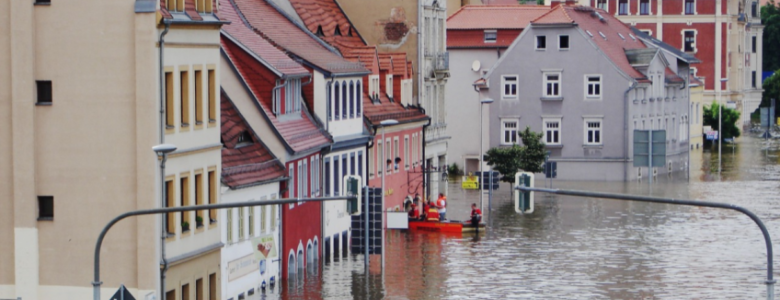In Florida, it is not mandatory to get flood insurance. This may seem contradictory since it may be an important requirement for your mortgage loan. Getting a flood insurance policy can be critical for those who live in a moderate-to-high risk flood zone.
History of Storms in Florida
Florida is susceptible to storms due to low elevation and westerly winds from the tropics and equatorial Africa. Up to 41% of hurricanes recorded in the United States make their landfall in Florida, making it a frequent target.
Out of 292 hurricanes to hit the U.S., 120 have made their way through the sunshine state. The northwestern areas receive lower temperatures than most of the other parts of the state and its location on the Gulf of Mexico. When a hurricane makes landfall, the low pressure strengthens its power. Out of the 120 hurricanes that have gone through Florida, the northwestern regions have been hit by 64.
On the other hand, low-risk zones are getting more exposure due to storm flooding. Nationally, there have been incidences of erratic weather patterns. Hurricane Irma hit areas like Southern Fort Meyers, which has had no flooding in a century. Even in Northwest Florida, where storms are expected, most hurricanes before Michael were of category 3 strength. The 2018 Category 5 hurricane was the strongest one on record.
No Flood-Free Zones
The bottom line is that hurricane insurance is necessary regardless of your location. A home insurance company may use flood-zone maps to determine the vulnerability of an area to storms. However, Floridians are advised to acquire flood insurance policy despite the perception of lower risk in their region.
Army Signal Corps has been trying to track hurricanes since the 1870s. At the turn of the 20th century, the National Hurricane Center developed sophisticated systems, such as unmanned machines, to fly into the eye of the storm. The most significant analysis of the storms usually happens between June 1st and November 30th.
Data collected over time indicates that Florida is so prone to storms, that there are virtually no flood-free zones. 20% of flood events still hit the areas of the state that are said to be low-risk. The wind-driven water from the storm can cause a lot of damage to your home. It is important to remember that your home insurance company’s policy often does not cover you from water damage by default.
Damages Covered by Commercial Insurance Providers
You shouldn’t wait until there is a warning to get your flood insurance. The kind of coverage you get will depend on where you live. Depending on the insurance for floods policy, it may cover the following types of damage:
Sewer Backup: In a storm, your sewers could be overcome by the pressure of flooding waters. Water can back up into the house through the sewers. Unfortunately, it is not always part of homeowners’ policies. Refer to the terms of your insurance provider to find if you’ll get compensation in case of this kind of damage.
Water Damage: Surging waters, leaking pipes, and damage to the structure of the buildings will usually require a separate policy. The homeowners’ policy often covers certain types of damage to household items or certain parts of the house structure.
Wind: Powerful storms can rip down trees and may fall compromising the integrity of the structure. Architectural shingles can resist speeds of up to more than 110 miles per hour but category 3 winds can go up to 129 mph. Given that these materials suffer from wear and tear, it is likely that most roofs would be susceptible to these powerful storms. Check with your home insurance company/provider and find out whether your policy also covers wind damage.
Contact Key Agency Today
Storms can cause significant damage to your home and Florida is one of the most storm-prone areas in the United States. Your homeowners’ policy may not cover certain types of damages. Contact Key Agency for more information about insurance policies today.

